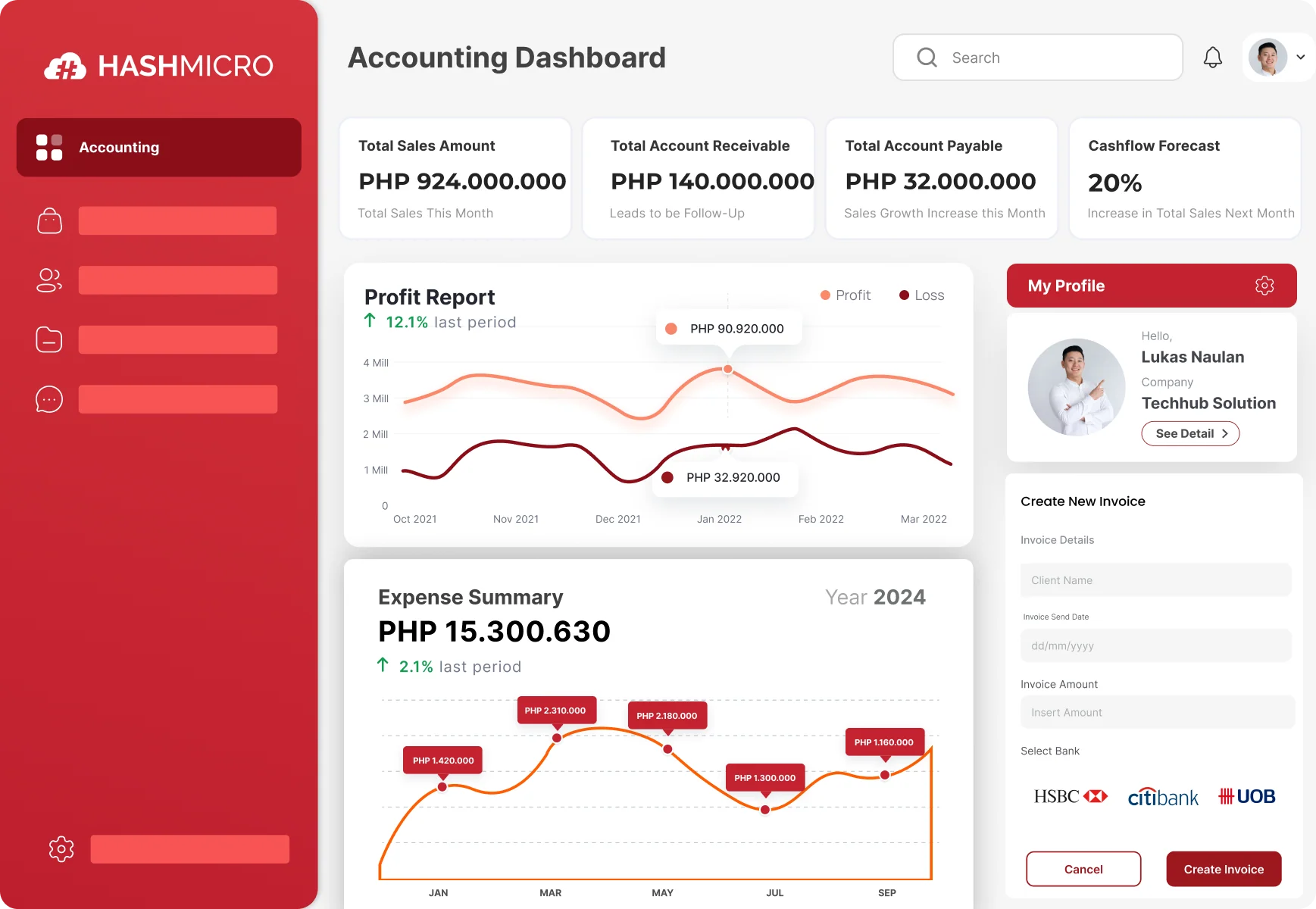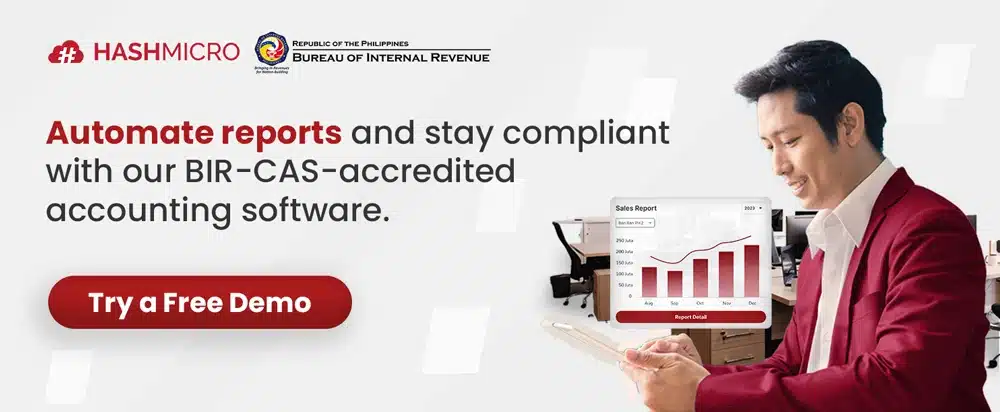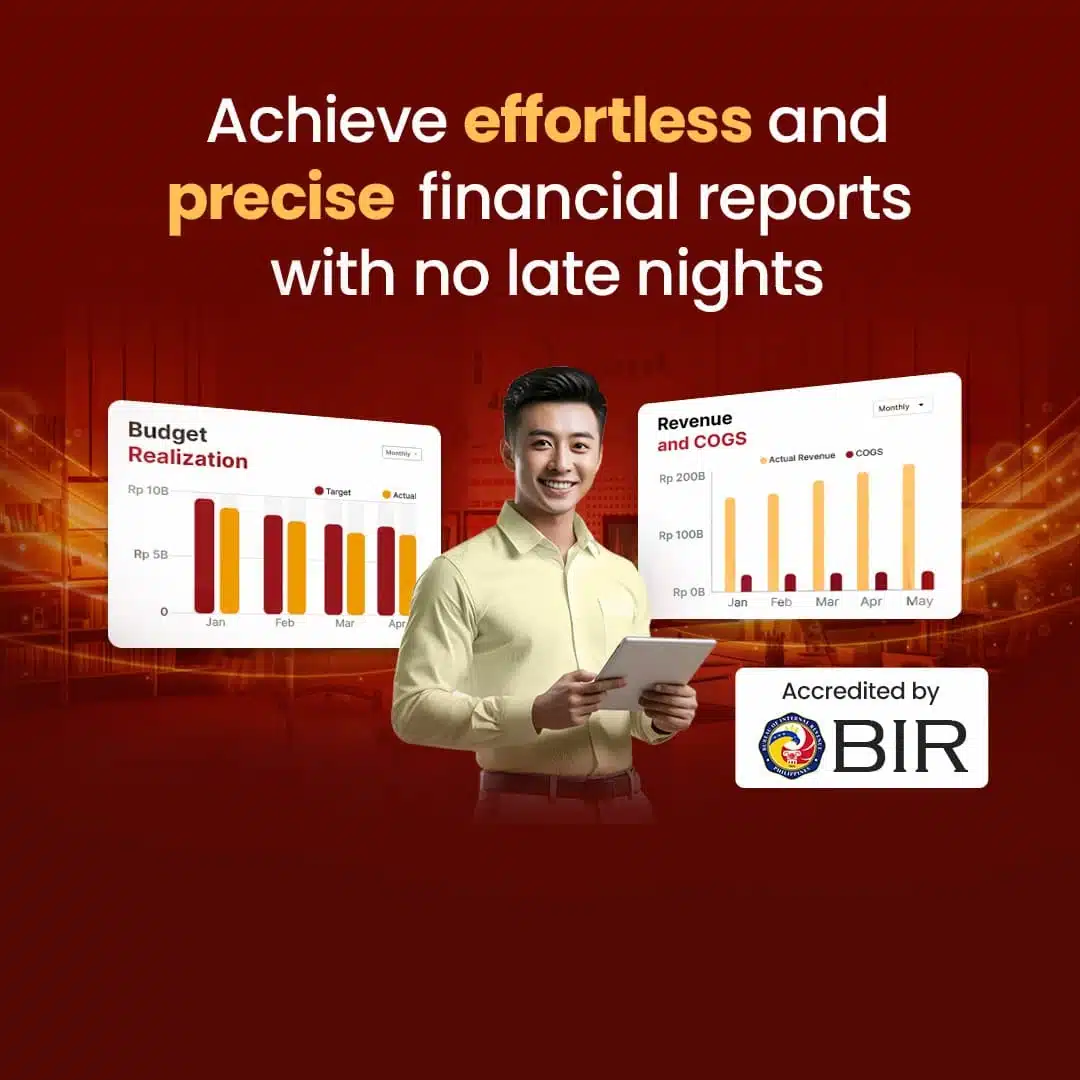Is your business working toward sustainability, but you’re not sure where to begin? Many companies in the Philippines face the same challenge: wanting to operate responsibly but struggling to track and report their impact accurately.
According to the Securities and Exchange Commission, 95% of publicly listed companies in the Philippines now report their ESG initiatives, a huge jump from just 22% in 2017. This shift shows how fast sustainability reporting is becoming a business norm.
Sustainability accounting helps businesses measure and manage their ESG performance, providing a clearer view of how operations impact people and the planet. To simplify this process, consider using solutions like HashMicro Accounting Software.
More companies are now embracing sustainable accounting to meet stakeholder expectations and improve long-term performance. Mas magiging madali ang pag-abot sa sustainability goals kung alam mo kung saan ka magsisimula. Want to know how? Keep reading as we break it down in this article.
Table of Contents
Key Takeaways
|
What is Sustainability Accounting?
Sustainability accounting involves tracking, measuring, and reporting a company’s environmental, social, and governance (ESG) impact. Unlike traditional financial reporting, it focuses on how a business affects people, the planet, and long-term societal outcomes.
This accounting method covers areas like carbon emissions, fair labor practices, community involvement, and ethical governance. For example, a company might report on how much waste it reduces annually or how its diversity policies improve employee well-being.
By adopting sustainability accounting, businesses can offer stakeholders, including customers, employees, and investors, a clearer understanding of how their values align with operational actions. It transforms abstract efforts into measurable data that supports greater accountability.
It is important to distinguish sustainability accounting from sustainability reporting. The former involves collecting and quantifying ESG data, while the latter is about presenting that data to external audiences in an organized and transparent manner.
Many companies now follow global standards, such as those set by the Sustainability Accounting Standards Board (SASB), to ensure consistency across industries. This standardization is increasingly crucial, as investors and stakeholders are placing more focus on non-financial performance when making decisions.
What Does ESG Mean?

ESG stands for Environmental, Social, and Governance factors, which reflect how a business manages risks and opportunities related to environmental protection, social responsibility, and corporate governance. These three pillars are integral for assessing the long-term sustainability and ethical impact of a company’s operations.
Environmental (E) focuses on how a company’s activities affect the environment. This can include efforts to reduce carbon emissions, waste management, and adopting renewable energy sources.
Social (S) refers to a company’s relationships with employees, suppliers, customers, and the communities in which it operates. It includes practices such as fair labor conditions, diversity and inclusion, and community development.
Governance (G) evaluates how a company is managed. It includes aspects like board diversity, executive compensation, ethical decision-making, and transparency in reporting.
In the Philippines, the Securities and Exchange Commission (SEC) encourages ESG reporting for publicly listed companies. The SEC guidelines help businesses disclose their environmental, social, and governance impacts, ensuring they align with both local regulations and global sustainability standards.
Many investors now view companies with strong ESG practices as more resilient and better positioned for long-term growth. By integrating ESG factors into business strategies, companies can build stronger reputations, increase customer loyalty, and attract ethically-minded investors.
Why Sustainability Accounting Matters
As sustainability continues to be a major focus for businesses worldwide, adopting sustainability accounting offers several compelling advantages. Here’s why it matters:
Holistic view of operations
Sustainability accounting goes beyond financial reporting by tracking environmental, social, and governance (ESG) factors. This gives businesses a comprehensive view of their impact, which is valuable for both internal decision-making and external transparency.
Attracting ESG-focused investors
Companies with strong ESG performance tend to attract investors looking for sustainable, ethical businesses. By adopting sustainability accounting, you align with ESG criteria that investors value, potentially lowering financing costs and increasing capital access.
Competitive edge in the Philippines
As SEC guidelines for ESG reporting grow in importance, businesses that adopt sustainability accounting early gain a competitive advantage. Aligning with local and global standards enhances your brand’s reputation and regulatory compliance.
Better decision-making
Sustainability accounting provides actionable data to help businesses make informed decisions. From improving resource usage to reducing costs, having the right data allows businesses to prioritize sustainable practices and manage risks effectively.
Enhanced reputation and brand loyalty
Consumers increasingly prefer businesses that prioritize sustainability. By integrating sustainability accounting, companies can build a strong reputation and foster customer loyalty, while also attracting top talent who share their values.
The Benefits of Sustainable Accounting
Adopting sustainable accounting brings multiple benefits that go beyond just meeting regulatory requirements. By incorporating environmental, social, and governance (ESG) factors into your financial reporting, your business can experience improvements in several key areas.
1. Improved financial performance
Many businesses find that focusing on sustainability actually drives long-term profitability. By monitoring resource usage, reducing waste, and improving energy efficiency, companies can lower operating costs. Moreover, sustainable practices often open up new revenue streams, particularly in eco-conscious markets.
2. Enhanced risk management
Sustainable accounting helps businesses identify and mitigate environmental and social risks. For instance, companies that monitor their carbon footprint can take proactive steps to reduce emissions before they face regulatory penalties. This kind of forward-thinking approach can help businesses avoid financial setbacks and stay ahead of evolving laws and regulations.
3. Increased stakeholder trust
Consumers, investors, and employees are increasingly aligning with businesses that prioritize ethical practices and sustainability. Transparent sustainability accounting fosters trust by providing clear and verifiable data about a company’s ESG performance. This transparency can enhance your brand image and attract loyal customers and investors.
4. Better regulatory compliance
Sustainability accounting aligns businesses with local and global regulations, making it easier to comply with reporting standards like those set by the SEC in the Philippines or international frameworks like the Sustainability Accounting Standards Board (SASB). By proactively reporting ESG factors, companies reduce the risk of non-compliance and associated fines.
5. Stronger market position
As more businesses adopt sustainability-focused strategies, those that lead in sustainability accounting gain a competitive edge. A strong commitment to sustainability can differentiate your business from competitors, making it more attractive to customers, investors, and potential partners who are increasingly prioritizing ethical and sustainable practices.
What is Sustainability Reporting in Accounting?
Sustainability reporting in accounting is the process of disclosing a company’s environmental, social, and governance (ESG) performance. These reports offer stakeholders, including investors, customers, and employees, a clear view of a company’s sustainability efforts and its impact on society and the environment.
ESG reports have become a regulatory requirement for large organizations, especially those with over 500 employees or annual revenues exceeding 500 million. These reports showcase how businesses are addressing pressing global challenges, such as climate change, social responsibility, and corporate governance.
The primary goal of sustainability reporting is to provide transparency about how a company manages its environmental and social responsibilities. This includes reporting on key factors like carbon emissions, waste management, and employee welfare. Additionally, the report covers governance practices, ensuring companies act with integrity and accountability.
Sustainability reporting brings several advantages. It helps build trust with stakeholders by providing a transparent view of a company’s ESG efforts. When companies disclose their sustainability practices, they show investors, consumers, and employees their commitment to ethical business operations. This can lead to attracting more responsible investors and loyal customers.
In addition, sustainability reporting also enables firms to compare their own performance against industry norms. Standard reporting frameworks like Global Reporting Initiative (GRI) and Sustainability Accounting Standards Board (SASB) provide standardized guidelines that make it convenient for firms to make their data comparable across industries.
Understanding the Fundamentals of Sustainability Accounting

Sustainability accounting extends financial reporting to cover environmental, social, and governance performance. Informing small businesses of what to measure and how to measure it can make accounting practice more useful to them in environmental sustainability.
Key Metrics in Sustainability Accounting
The following are key areas that businesses should measure and report in order to understand their ESG performance:
- Environmental Impact: This includes tracking carbon emissions, energy consumption, waste management, water usage, and the company’s resource efficiency. Understanding these metrics helps businesses reduce their environmental footprint and make changes that benefit both the business and the planet.
- Social Responsibility: Metrics in this area focus on employee wellbeing, community engagement, labor practices, and human rights. Measuring social factors helps businesses ensure they operate in ways that positively influence both their workforce and the communities they impact.
- Governance Practices: This involves monitoring aspects such as board diversity, executive compensation, ethical business practices, and accountability. A strong governance framework ensures that businesses operate with integrity and transparency, which, in turn, fosters stakeholder trust.
Why Sustainability Accounting Matters: A Catalyst for Sustainable Growth
Sustainability accounting plays a pivotal role in shaping a company’s long-term strategy and growth. By tracking and reporting on environmental, social, and governance (ESG) factors, businesses can make informed decisions that not only benefit their financial performance but also contribute to global sustainability goals.
Long-term focus on sustainability
Sustainability accounting shifts focus from short-term profits to long-term sustainability. By considering environmental and social goals, companies can improve efficiency, anticipate regulatory changes, and reduce risks, securing their future growth and success.
Improving financial performance
Many businesses discover that investing in sustainability leads to improved profitability. By reducing energy consumption and waste, companies lower operating costs, and those committed to sustainability attract investors focused on long-term growth, enhancing capital access.
Enhancing reputation and brand loyalty
In a market where consumers value sustainability, transparency in ESG practices enhances trust. Companies that openly report their sustainability efforts build brand loyalty, attract ethical investors, and foster customer retention, contributing to long-term success.
Attracting investors
As ESG-focused investing grows, businesses that report on sustainability are more appealing to investors. Detailed sustainability reports allow investors to assess risk and support companies that align with their ethical and long-term financial goals.
Embracing Sustainability Principles Within Your Practice

Even if your business doesn’t meet the criteria for mandatory ESG reporting, exploring environmental, social, and governance (ESG) factors can still be beneficial. Embracing these areas early can help your business outperform competitors in the long run.
Start small by measuring basic sustainability metrics such as carbon footprint, energy consumption, and waste production. Even small adjustments like reducing office waste or using renewable energy can make a meaningful difference.
Set clear, measurable ESG goals that align with your overall business strategy. Whether it’s reducing energy use, improving employee diversity, or enhancing community engagement, having specific targets will help you track progress and make informed decisions.
If your business is already familiar with creating reports or forecasts, you can apply those skills to track ESG performance. This makes it easier to integrate sustainability accounting into your existing practices and ensures that all metrics are reported consistently.
Standard Metrics to Measure Sustainable Accounting
Sustainability accounting relies on measurable data, but gathering that data isn’t always straightforward. ESG reports are often based on self-reported numbers that aren’t consistently audited, making it harder to tell whether a company’s sustainability claims truly reflect its performance.
To improve credibility, businesses use recognized frameworks that help define which metrics to track. While some organizations develop their own indicators, many follow standards like SASB or GRI for consistency and reliability across industries.
Sustainability metrics fall under the broader umbrella of types of accounting used to assess a business’s overall performance. Within this scope, environmental data includes carbon emissions, energy use, and waste reduction—key indicators of how a company affects the planet.
Social metrics focus on how a company supports its workforce and community. These might include diversity statistics, employee well-being, and social impact programs. Governance, meanwhile, looks at transparency through leadership structure, ethical practices, and executive compensation.
Integrating ESG metrics into a company’s accounting system ensures that sustainability becomes part of everyday decision-making. It also allows businesses to benchmark progress, comply with reporting standards, and communicate their impact more clearly to stakeholders.
If you’re looking to streamline how you track and report sustainability metrics while staying compliant with global standards, then using a reliable solution like HashMicro can make all the difference. Click the banner below to explore pricing options and see how it fits into your business needs.
Streamlining Sustainability Accounting with HashMicro

Trusted by over 2,000 clients, Hashmicro’s Accounting Software is recognized for its credibility and ability to meet diverse business needs no matter its scale. It helps you manage sustainable accounting alongside core financial operations, driving both growth and social responsibility.
Key features include:
- Real-time transaction tracking: Ensures accuracy and transparency by recording financial transactions, including sustainability-related data.
- Expense and budget management: Gain control over costs related to sustainability initiatives and maintain a balanced budget.
- Seamless integration: Connect your accounting system with other platforms like HR, sales, and inventory for unified operations.
- Real-time analytics: Provides dashboards and insights to monitor sustainability metrics, identify trends, and support informed decision-making.
- Automated reporting: Generate detailed reports on your performance with ease, ensuring compliance with international standards.
With HashMicro, you can boost operational efficiency and support your sustainability goals. It also helps ensure compliance with regulations, reducing the risk of penalties. Ready to get started? Book a free demo to see how it works for your business.
Conclusion
Sustainability accounting is essential for businesses that want to align with environmental, social, and governance (ESG) principles. By tracking key sustainability metrics, companies can enhance their performance, build trust with stakeholders, and positively impact global challenges such as climate change and inequality.
HashMicro’s accounting software makes sustainability accounting easier by offering tools to track and report ESG metrics, ensuring compliance with global standards. These features enable businesses to integrate sustainability seamlessly into their daily operations, improving transparency, reputation, and long-term growth.
Book a free demo today if you’re ready to improve your sustainability reporting and drive business growth. See how HashMicro’s accounting software can streamline your processes and help you achieve your sustainability goals efficiently.
FAQ About Sustainability Accounting
-
How often should sustainability accounting reports be generated?
While large corporations may publish ESG reports annually, internal sustainability metrics should be reviewed quarterly or even monthly. Frequent tracking helps businesses adapt quickly and measure real progress toward sustainability goals.
-
How can companies verify the accuracy of their sustainability data?
Many businesses use third-party auditors or ESG assurance providers to validate their data. Additionally, automation tools and accounting systems can improve accuracy by minimizing manual errors and ensuring consistent data collection.
-
Can small businesses benefit from sustainability accounting even if they aren’t required to report ESG?
Yes, even small businesses can gain from sustainability accounting. It helps improve operational efficiency, identify cost-saving opportunities, and build a socially responsible brand that attracts conscious consumers and investors.






































